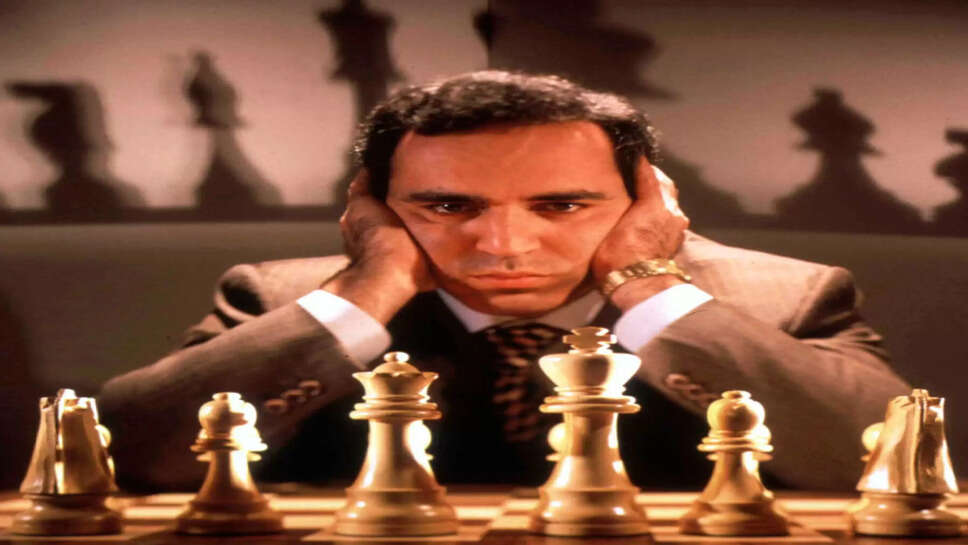The match that shook the world: Kasparov versus Deep Blue

In 1997, the world of chess witnessed a turning point that transcended pawns and kings, strategy and calculation. It was the moment when the reigning king of human intellect—Garry Kasparov—stood toe-to-toe with a cold, calculating machine. It wasn't just a battle for a championship—it was a confrontation between mankind’s cerebral pride and the relentless progress of artificial intelligence.
The machine was named Deep Blue, IBM’s ambitious creation built not just to play chess but to redefine the boundaries of what machines could achieve. The man was Garry Kasparov, the world champion, widely considered the greatest chess player to have ever lived. At stake: the legacy of human superiority in the intellectual arena.
A Clash of Titans
Kasparov had always been known for his fierce willpower, psychological acumen, and deep positional understanding. He’d demolished human challengers and had faced earlier versions of computer programs with a mix of disdain and cautious interest. Computers were tools, not opponents—or so he thought.
Deep Blue, however, was different. It had been upgraded since its initial match with Kasparov in 1996, when the grandmaster won narrowly. This time, the machine was faster, smarter, and designed to play not like a human, but like a god of calculation—an entity unburdened by fatigue, emotions, or ego.
Kasparov came in confident. But beneath the confidence was a chess master who underestimated the evolution of his opponent.
The Turning Point
The match began as expected. The first game went to Kasparov, and many thought it would be a repeat of 1996. But in Game 2, Deep Blue played a move that stunned Kasparov—not because it was brilliant, but because it was so… human.
A quiet, defensive bishop move. No aggression, no tactic, just subtle strategy. Kasparov froze. Was the machine bluffing? Did it understand long-term planning?
He began to believe that a human hand was behind the move—a grandmaster assisting the machine. That paranoia crept into his gameplay like fog on a battlefield. For the rest of the match, Kasparov played not just against the machine, but against his own doubts and fears.
Mind vs Machine
In many ways, Kasparov was trying to outwit not just the chess program but the idea of the machine. He sought to make it blink, hesitate, second-guess—just like any human opponent. He threw unconventional moves at Deep Blue, tried psychological traps, and even purposefully blundered to provoke irrational responses.
But Deep Blue didn’t blink. It didn’t fall for traps or react emotionally. It didn’t celebrate when it won or despair when it lost. It simply calculated, evaluated, and moved forward.
As the match progressed, Kasparov grew visibly frustrated. He accused IBM of foul play, demanded logs, requested data. His frustration wasn’t just about losing—it was about losing control.
In Game 6, the final match, he collapsed. Whether due to mental exhaustion or strategic despair, he made a blunder so amateurish that commentators gasped. Deep Blue pounced. Checkmate. History was made.
Aftermath of Defeat
The loss was devastating for Kasparov—not just professionally, but personally. He had carried the weight of human intellect on his shoulders, and it had crumbled beneath him. He accused IBM of hiding evidence and manipulating moves, though nothing was conclusively proven.
IBM, on the other hand, declared victory not just for the machine, but for technological progress. They had created a moment that made the world pause and reconsider the relationship between humans and artificial intelligence.
Kasparov, though bruised, didn't vanish. He went on to become an outspoken advocate for the ethical use of AI and technology, writing books and giving talks about his encounter with Deep Blue. In time, his perspective matured. He began to see the loss not as the end of something, but the beginning of a new kind of partnership between humans and machines.
Legacy of the Match
The Kasparov vs Deep Blue saga wasn’t just about chess. It sparked debates across industries:
-
Can machines truly "think"?
-
Should AI be allowed to outperform humans in creative or strategic domains?
-
What is the role of intuition in an age of data-driven decision making?
Today, chess engines like Stockfish and Leela Zero can crush any human player. But the Kasparov match remains iconic—not because of how it ended, but because of what it represented: the first moment a machine looked a genius in the eye and didn’t blink.
A Symbol of Change
In many ways, Garry Kasparov tried to confront a future that was still in its infancy. He tried to push back against the tide of progress with sheer willpower. But unlike his human opponents, Deep Blue could not be rattled. It had no pride to wound, no confidence to shake.
He wasn't just playing chess—he was fighting a symbol. And symbols, especially ones backed by billions of calculations per second, don’t flinch.
What he learned, however, shaped his future. Kasparov now speaks of "augmented intelligence," where machines empower human creativity rather than replace it. He acknowledges that while he lost the match, humanity gained a lesson in humility, evolution, and adaptation.
In the end, Kasparov's loss wasn't a defeat—it was a door. A door into a new world where human brilliance doesn’t vanish in the face of machines, but finds new ways to shine through collaboration.
.jpg)